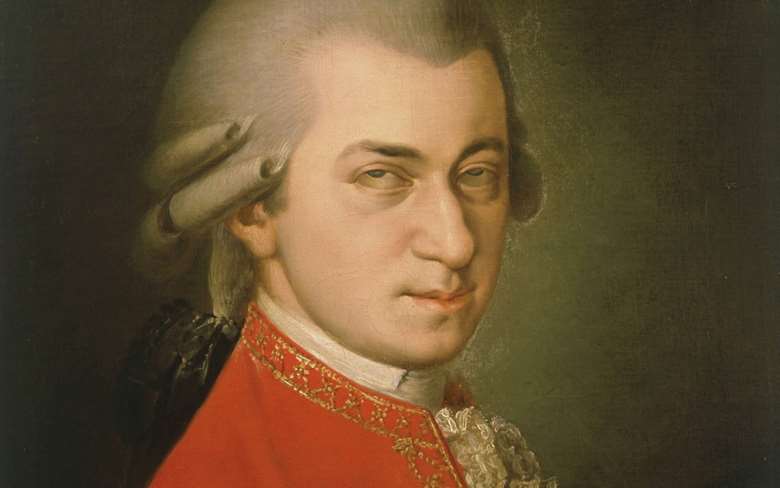Should I be concerned about the widespread ignorance of classical music?
Charivari
Thursday, June 1, 2023
In the wider world, why is ignorance bliss when it comes to classical music, wonders a despairing Charivari

Everyone reading these pages will doubtless have more than a basic knowledge of classical music. But we really must not take this for granted in others and assume the same level of familiarity among the general public, whose lack of knowledge of the subject is, to put it mildly and in the vernacular, gobsmacking.
I happened to bump into an old schoolfriend the other week. He had worked all over the world in a senior position for a global oil company. I told him I had just been to a concert celebrating the 150th anniversary of Vaughan Williams. ‘Who?’ he asked. ‘Vaughan Williams,’ I repeated, ‘the composer.’ ‘Sorry,’ he said. ‘Never heard of him.’
Everyone can tell the difference between a Rembrandt and a Monet, or a Turner and a Picasso. So why do people not know the difference between Beethoven and Mahler, Chopin, and Rachmaninov?
TV quiz shows provide a rich vein of ignorance among the kind of people who like to appear on TV quiz shows. The satirical magazine Private Eye recently came up with a couple of eyebrow raisers. Quizmaster: ‘What is the name that links the prince in Swan Lake and the war poet Sassoon?’ Contestant: ‘Vidal.’ Quiz master: ‘Beginning with the letter O, what is the piece of music played at the beginning of an opera?’ Contestant 1: ‘Othello.’ ‘No.’ Contestant 2: ‘Oria.’
A couple of months ago I witnessed a similar dip in the I-don’t-believe-it gene pool on another daytime TV quiz show. A young man had been assigned to answer his team’s questions on music. Before we started, we assumed that by ‘music’ it really meant ‘pop music’, and probably ‘pop music of the last 30 years’. But no, there was a classical question: ‘What instrument was Niccolò Paganini famous for playing? Was it a) piano, b) trumpet or c) violin?’ The young man had never heard of Paganini, natch, but thought, for some reason, that he didn’t sound like a pianist. Nor a trumpeter. So – ‘and this is just a guess… violin’. Correct!
Later on, a harder one: ‘Which famous composer conducted the world premiere of Wagner’s opera Lohengrin?’ (No alternative answers were offered.) The contestant floundered, shaking his head. He had never heard of Wagner, let alone Lohengrin. Best to come up with the name of a famous composer. His answer? ‘Mozart’. Yes – of course! – Mozart conducted the premiere of Lohengrin. Sweet mother of mine. Fair enough, not everyone would have known the correct answer, but still, to put Mozart and Wagner in the same century. After that, I hoped so very much that the young man and his team would lose the quiz. My wish was granted shortly afterwards.
Why do few music rounds (on telly or in the pub) go beyond asking who had a hit with their one-and-only long-forgotten three-minute chart topper? A) Because question setters have no knowledge of classical music themselves. B) Because they have been asked not to submit questions on classical music and risk being accused of being elitist/difficult/off-putting. C) Because it’s all written by dead white men, innit?
A friend of mine was at Glyndebourne watching The Magic Flute, the production with David Hockney’s designs. In the interval, during the picnic, my friend overheard a voluble American lady extolling the virtues of the production. ‘That David Hockney. He is soooo clever. Did he write the opera too?’
How is the gap to be bridged? What could I have said to the taxi driver who, many years ago, took me to a concert. ‘What’s the music, then?’ he asked. ‘Mozart,’ I replied. ‘All Mozart.’ ‘This Mozart, then. He was a bit of a genius, wasn’t he?’ ‘He was indeed,’ I agreed. ‘On the other hand,’ continued my driver, ‘there wasn’t anyone else around at the time, was there, so of course he’d have been considered a genius.’ ‘No one else around?’ I queried.
‘Well,’ he went on, ‘you had the Irish, of course, with their penny whistles. But that was about it.’
Yes, I know. People Like Us, immersed in all aspects of music, the piano and its world, look aghast. Does any of this matter? After all, I would equally be mocked for my ignorance of the FIFA World Cup, the hit songs of Oasis or the lives of the Kardashians.
I think it does matter, because classical music is one of the most important, enriching, rewarding and elevated of all human and cultural endeavours. It is deeply rooted in Western society and the development of our civilisation.
Everyone can tell the difference between a Rembrandt and a Monet, or a Turner and a Picasso. So why do people not know the difference between Beethoven and Mahler, Chopin, and Rachmaninov? And why – even more depressing – is it not merely a matter of ‘don’t know’ but one of ‘don’t care’?
This article originally appeared in the January/February 2023 issue of International Piano. Never miss an issue – subscribe today








